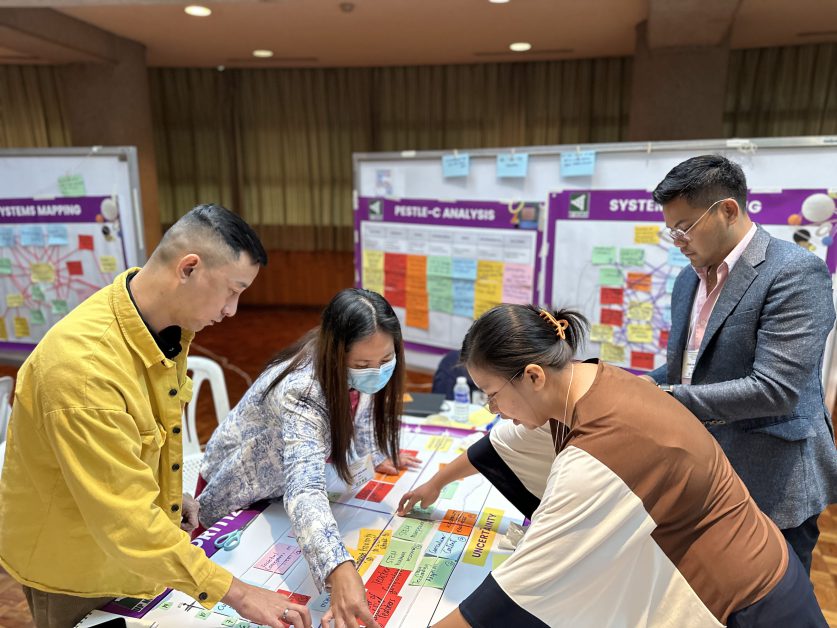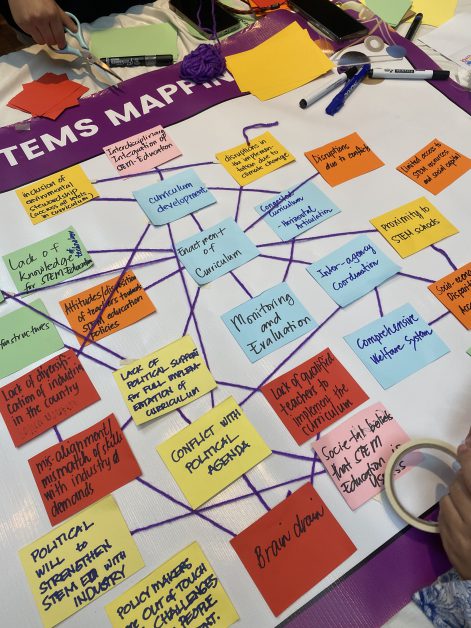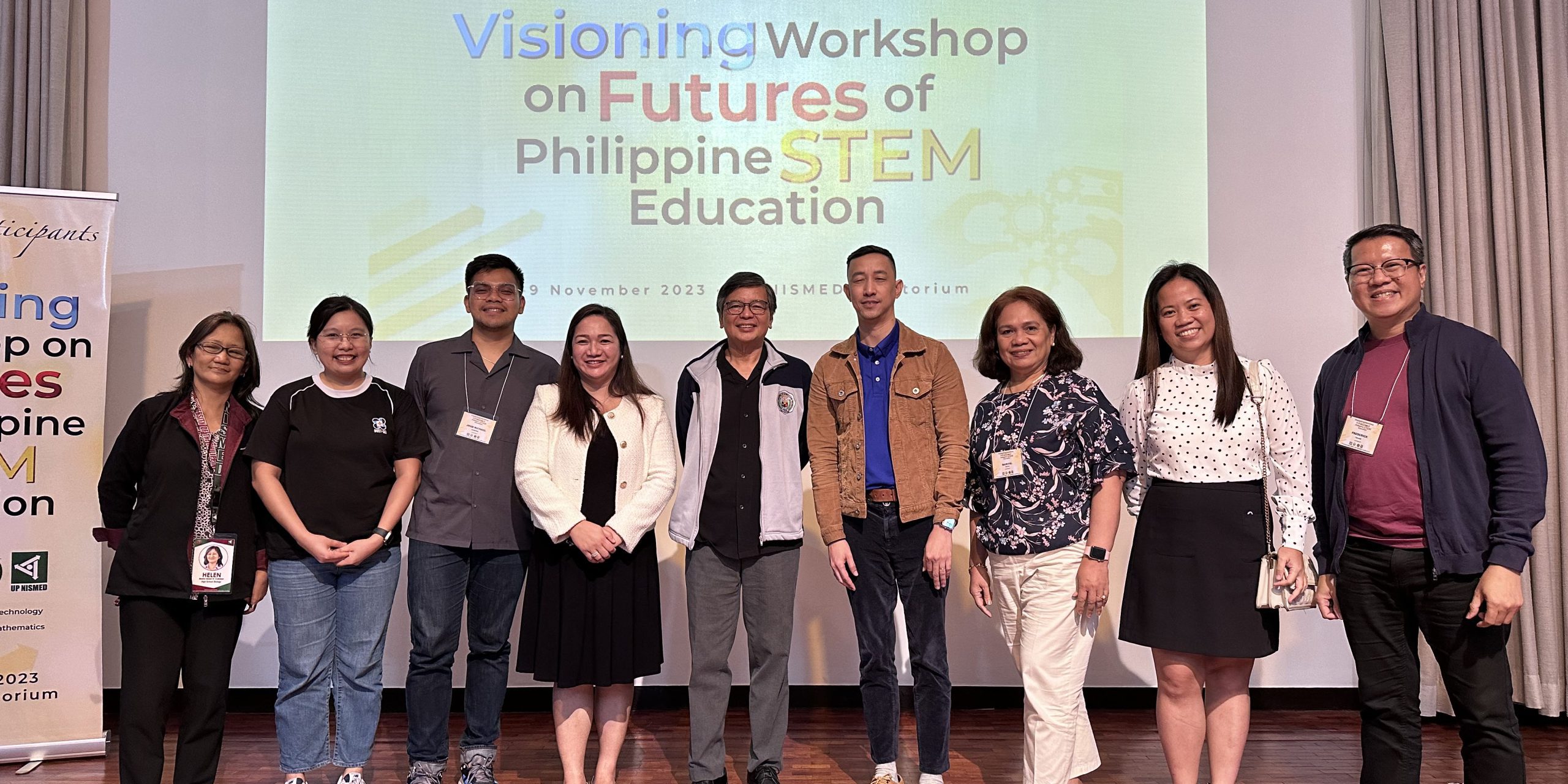by John Michael A. Guerzon, SLU Basic Education School
In a significant stride toward advancing the landscape of Science, Technology, Engineering, and Mathematics (STEM) education in the Philippines, Saint Louis University (SLU) made a noteworthy contribution to the recently concluded Workshop on the Futures of Philippine STEM Education, which took place from 7 to 9 November 2023, at the Science Teacher Training Center (STTC), UP NISMED, Diliman, Quezon City.
The workshop, organized by the National Academy of Science and Technology (NAST) in collaboration with the University of the Philippines National Institute for Science and Mathematics Education Development (UP NISMED), brought together key stakeholders and experts in the field.
Representing SLU at the event was Mr. John Michael A. Guerzon, a STEM educator from the institution. It focused on bringing together professionals from the Centers of Excellence in Teacher Education, including prominent figures from other leading universities and key players such as the Department of Education (DepEd) and the National Educators’ Academy of the Philippines (NEAP).
The workshop followed a structured agenda over the three days, emphasizing active participation and collaborative thinking among the attendees.


Workshop Highlights
Day 1: Building Models and Identifying Issues
The first day of the workshop engaged participants in model-building activities, offering a platform for expressing thoughts and perspectives on the future of STEM education. Grounded in reality, a PESTLE-C Analysis was conducted to identify the various issues facing Philippine STEM education.
Day 2: Trends and Drivers Analysis
Based on the issues identified in the PESTLE-C analysis, participants delved into trends and drivers that influence Philippine STEM education. Through systems mapping activities, connections of the drivers were explored, and dominant nodes were identified and analyzed. Priority matrices were then used to pinpoint key drivers with high impact and uncertainty levels, forming the basis for a 30-year action plan.
Day 3: Developing a 30-Year Horizon Plan
The final day focused on creating a 30-year horizon plan. Participants dissected the identified drivers into actionable categories, scenario labels, and existing enablers and crafted a narrative envisioning the future of STEM education in the Philippines. This exemplifies a holistic application of Futures Thinking principles, fostering a proactive and forward-looking stance to address the evolving needs of STEM education in the Philippines.
The overarching aim of the workshop was to (1) analyze trends and drivers influencing Philippine STEM education and (2) develop future scenarios and a 30-year horizon plan to enhance the anticipatory capacities of the STEM ecosystem in the country. Insights gained from the workshop will be consolidated by the NAST PHL Technical Working Group (TWG) and UP NISMED, with plans to publish the findings in a book entitled “Futures of Philippine STEM Education.”
SLU’s active participation in this workshop underscores its commitment to shaping the future of STEM education in the Philippines and contributing to the broader national discourse on educational development. The institution’s involvement aligns with the United Nations Sustainable Development Goals (SDGs), particularly Goal 4: Quality Education. By analyzing trends and drivers and envisioning the future of STEM education, the workshop aims to contribute to developing a sustainable, inclusive, and equitable educational ecosystem that empowers individuals and promotes lifelong learning opportunities for all.
Impact
SLU plays a visionary role in shaping the future of Philippine STEM education through its active participation in the workshop. SLU is committed to promoting CICM advocacy on justice. The university contributes significantly to improving the STEM education agenda, primarily focusing on benefiting learners and members of the vulnerable sector.
As the workshop delves into the intricacies of future STEM education, it brings a transformative perspective to the table. For the entire educational system, it serves as a catalyst for proactive planning, paving the way for anticipatory measures to address evolving challenges and opportunities. Specifically for SLU, participation signifies a commitment to innovation and a forward-thinking approach, aligning with the institution’s dedication to justice in education.
Through a collective effort to tackle issues in STEM education implementation, the workshop ensures that the concerns of learners and the vulnerable sector are prioritized. It fosters a collaborative environment where diverse perspectives come together to craft a 30-year horizon plan, creating a roadmap that advances STEM education and upholds the principles of justice for all involved stakeholders.







